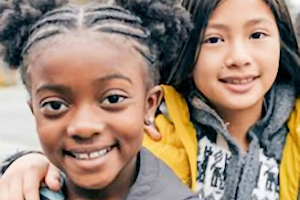Developing social interaction opportunities and friendships

Interacting with peers and making friends may be challenging for children and young people with language and communication difficulties. We want all children to be happy at school and we know that friendships and social interaction are just as important as the academic side of school.
Here are some ideas to help:
- Encourage your child to join groups around their interests e.g. sports groups/ youth groups. Children are more likely to interact with others when relaxed and while doing an activity that they really enjoy.
- Help your child to recognise emotions in themselves and others e.g. sad, happy, scared, excited, angry, surprised. Recognising emotions helps children to show empathy to others and also to regulate their own emotions in tricky times with friends.
- If your child can have conversations, talk about what being a friend means to them and what they like in a friend.
- Try setting up a playdate with another child at your home or somewhere your child feels comfortable. You may need to support your childís play by setting up activities such as arts and crafts, Lego building and board games etc. Some children prefer structured activities and games more than free, open-ended play.
- Consider starting with shorter periods of time your child is with other children if they can become overwhelmed then gradually build up the amount of time they spend in social situation e.g. at the park, at a birthday party. Crowded or busy places and situations can be intimidating to some children and make it harder for them to make a friend.
- In the same way that your child may need learning breaks at school, offer breaks during social occasions if your child may become overwhelmed and tired.
- Prepare your child the night before by talking about where they will go, who else will be there and what activities will be available.
You could also ask your childís school about interventions such as:
- lunchtime clubs.
- buddy programmes
- circle of friends.
- if your child has a specific condition (e.g. autism) school staff may be able to arrange a specific class talk an autism to increase peers' awareness.
Last updated10 Sep 2025

